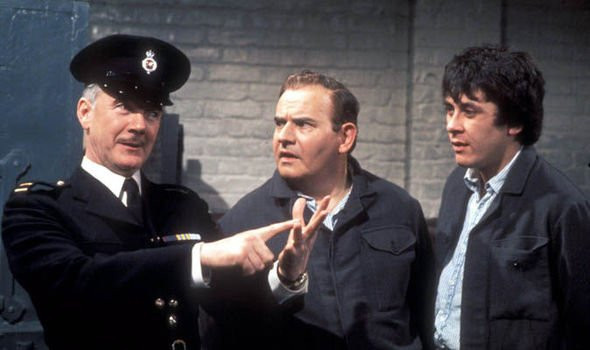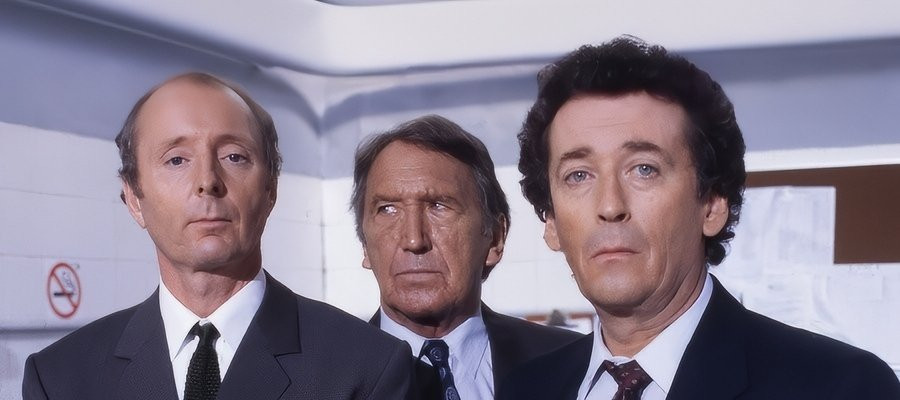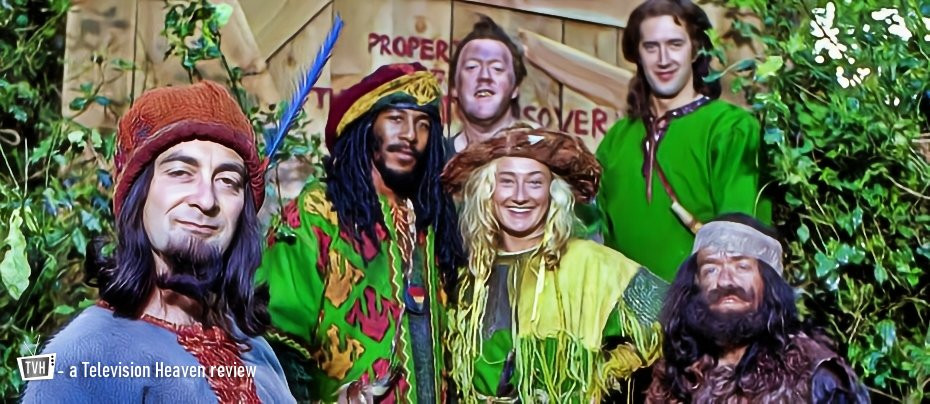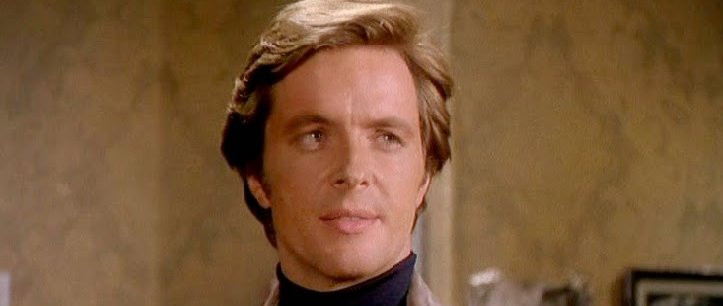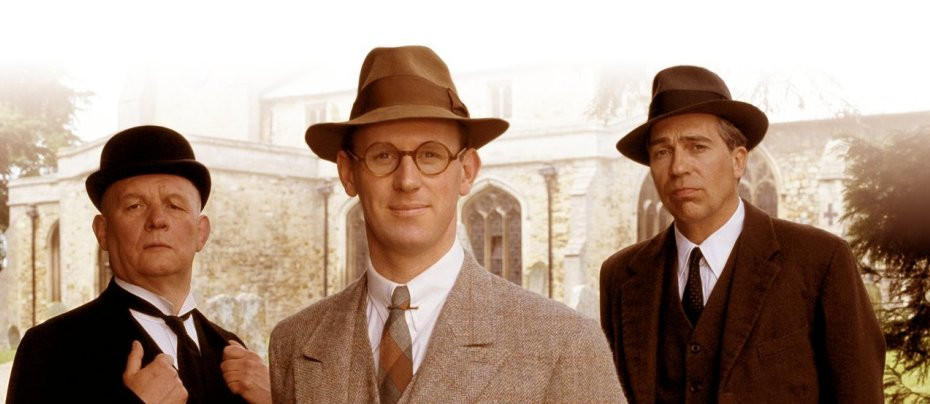
Campion
1989 - United KingdomThe English novelist Margery Allingham achieved fame around the dubiously titled "Golden Age of Detective Fiction" although opinion tends to become somewhat divided when placing her works among some of the more well-known writers of the genre. Her detective, Albert Campion, was an aristocratic, unassuming detective, matured from "just a silly ass" of the 1920s to an eminent intelligence veteran forty years later.
"I was twenty-three when I created Campion," said Allingham in a 1959 press interview. "I gave him the age of twenty-seven because I believed it important for a hero to be older than I was at the time. In those days I thought twenty seven was a very advanced age.
"Campion has, of course, grown up - as I have done. He is as old as this century. When he was 'born' I first saw him as a sort of 'Burlington Bertie' of the 1920s. As he grew older he became more serious."
Other recurrent characters in the Campion series include his wife, Amanda; his manservant, Magersfontein Lugg; and his police associates, Stanislaus Oates and Charlie Luke. The novels and stories in which they appear are, according to fans, among the most distinguished in the genre. To those who take the opposing position to her work, it is regarded to be of a second-rate, akin- it has been unfairly suggested, to that of twentieth-century B-grade detective fiction writers.

Allingham's first novel was published in 1923 when she was 19 and was inspired by material she observed in Layer Breton, a village and a civil parish in Essex and just a few miles from her family home on Mersea Island. The adventure story, Blackkerchief Dick, is a tale of seventeenth-century pirates and smugglers. The Bookman (a monthly published literary journal whose contributors included G.K. Chesterton, J.M. Barrie, W.B. Yeats and Samuel Beckett) for October 1923 welcomed a "thoroughly entertaining" story, written "with an ease and finish given to few young writers."
Campion made his debut as a minor character and, for a time, a suspect in a particularly gruesome incident in The Crime at Black Dudley in 1929. Campion was promoted to leading character in Mystery Mile and remained so for seventeen more novels and some thirty stories. This book is also notable for the introduction of two of his chief flunkies, the old lag Lugg (a former cat burglar), and the dependable policeman Oates.
In 1958, the BBC decided it was high time that Albert Campion made his screen debut.
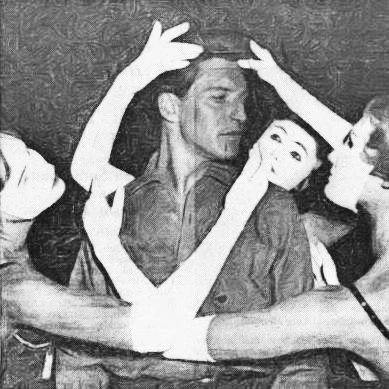
The story, Dancers in Mourning, adapted by John Hopkins from Allingham's original tale begins backstage at a London theatre where Jimmy Sutane (Dennis Quilley), a world famous star of musical comedy, is being subjected to a series of particularly vicious practical jokes which threaten his reputation. He calls on Campion (Bernard Horsfall) to help him and, with Lugg (Wally Patch) in tow, the story moves to his country house in East Anglia, the locale of many Campion adventures.
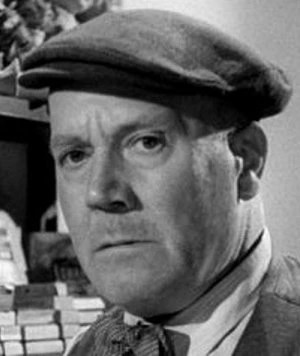
Daily Herald TV critic Phil Diack wrote: 'I felt most aggrieved about the B.B.C.'s serial "Dancers in Mourning" which employs some actors I admire very much. I hate to see such talented people milling around as clues in a complicated crossword puzzles (sic) that should never have escaped from between the covers of a book.' The Birmingham Daily Post critic found episode two far more interesting telling readers that 'Margery Allingham's skill as a writer of thrillers was apparent in the second instalment of Dancers in Mourning. These characters are far from being stereotyped and one is really interested in their reactions to the mysterious death of the dancer Chloe Pye.' The series was shown on a Monday night, normally around 9.30pm over a period of six weeks (10 Aug to 14 Sep).

Despite the mixed reaction, Campion returned to our screens the following year with a TV adaptation of Death of a Ghost. The Birmingham Daily Post's critic (who may or may not have been the same writer as the previous year - the credit only goes to 'a correspondent') wrote that this outing for our amiable private detective was 'such a mixture of mystery that I now feel like a schizophrenic customer in a dreamy Billingsgate full of red herrings.' The critic concluded 'Bewildering, yes, but more agreeably so than the Philip Marlowe episode which followed.' Clearly a fan - was 'a correspondent.'

There was one more outing for our intrepid detective before the 1989 series Campion, and that was an episode in the anthology series Detective, which employed a team of top television writers to bring lesser known fictional sleuths to life on the small screen. Based on the short story The Case of the Late Pig this episode featured Albert Smith as Campion and George Sewell as Lugg who are called in to clear up the stranger's death and find themselves involved in a mystery unguessed at by the people they have come to help.
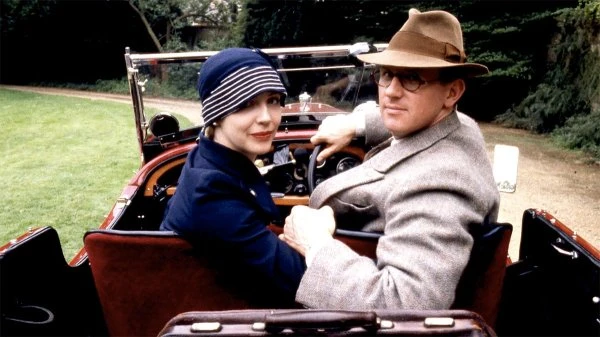
When the BBC next brought Campion out of mothballs their choice of lead actor couldn’t have been better. Peter Davison had been one of the best known faces on television throughout the 1970s and 80s with some extremely popular and high profile roles. In 1978 he took on the role of Tristan Farnon in All Creatures Great and Small before taking on the daunting task of Doctor Who’s fifth incarnation. After doing the popular sci-fi series for three years, Davison became a doctor of another sort. In A Very Peculiar Practice, Andrew Davies' darkly surreal masterpiece, he played hapless, idealistic medico Stephen Daker who joins a barking-mad medical practice. He had already returned to the veterinary practice in 'Great and Small' in 1988 and was now ready to put even more distance between his own personality and that of the time traveller he had so successfully played but who he hoped wouldn’t typecast him.
Peter Davison's version of Albert Campion was highly stylised and very very British ("Forgive my asking, it's my natural curiosity and prejudice. Are you thinking of killing me? This is Suffolk, you know. They take a dim view of corpses.") The BBC have always excelled at period drama and this was a prime example, even though the series now tends to fly rather under the radar somewhat compared to other TV sleuths of this period such as Inspector Morse, Agatha Christie's Poirot and The Adventures of Sherlock Holmes. The mysteries themselves tend to come across as run-of-the-mill whodunits that mostly involve upper-class shenanigans. What truly set this adaptation apart was Davison's perfectly pitched gentleman sleuth, whose calling cards announced "Coups neatly executed. Nothing sordid, vulgar, or plebeian. Deserving cases preferred. Police no object." Furthermore, his assistant, Lugg, this time played by former all-in wrestler turned actor Brian Glover, had a much harder edge than previously portrayed on screen and was more in-keeping with Allingham's original concept for the character.
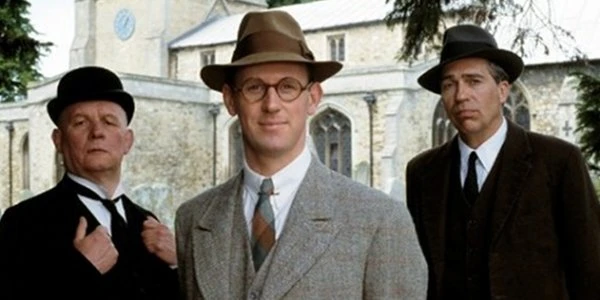
Support cast also included Andrew Burt (as Chief Inspector Stanislaus Oates - pictured above), Ian Ogilvy, Iain Cuthbertson, Gordon Jackson, Michael Gough (who had appeared in the original 1959 series), Pippa Guard, Timothy West, John Fortune, Lysette Anthony (pictured below with Peter Davison), Dilys Laye, Rosalie Crutchley, David Haig, Patricia Brake, Hugh Paddick, and Geoffrey Bayldon.

The opening credits for the first series featured a foggy scene of a man walking up a flight of stairs and entering Campion's flat, but for the second series this was replaced by a long shot of Campion's Lagonda approaching the camera, driven by Lugg with Campion as passenger.
Four novels were adapted for each of the two series made, each of which was originally broadcast as two separate 50-minute episodes. Critics loved it with favourable reviews that often noted with relish the series’ use of beautifully beautiful locations and even more beautifully restored period cars.

The series was sold to America where it was shown as part of the long-running Mystery! series on PBS (the Public Broadcasting Service). Mystery! was in its first year with a new host - Diana Rigg, who had taken over from an ailing Vincent Price.
The popularity of Margery Allingham's series was such that it was continued in several titles by her husband Philip Youngman Carter in the 1960s, and further by author and screenwriter Mike Ripley in five titles between 2014 and 2018.
After a break of over thirty years, it might just be time for Campion to begin investigating once more.
Seen this show? How do you rate it?
Seen this show? How do you rate it?
Published on May 11th, 2022. Written by Marc Saul for Television Heaven.




